Ammatolí, Chef Dima Habibeh’s James Beard-recognized Levantine restaurant, has expanded its footprint again. Shortly after expanding east into the former BurgerIM space, it has now taken over the former açaí bowl space toward its western edge.
The room—lovingly called “hayati” (حياتي), or “my life” in Arabic—is the lifelong culmination of Chef Dima’s dream not just to bring Levantine food to SoCal but to have a constant swarm of people asking for, learning about, and yearning for the food of her heritage.
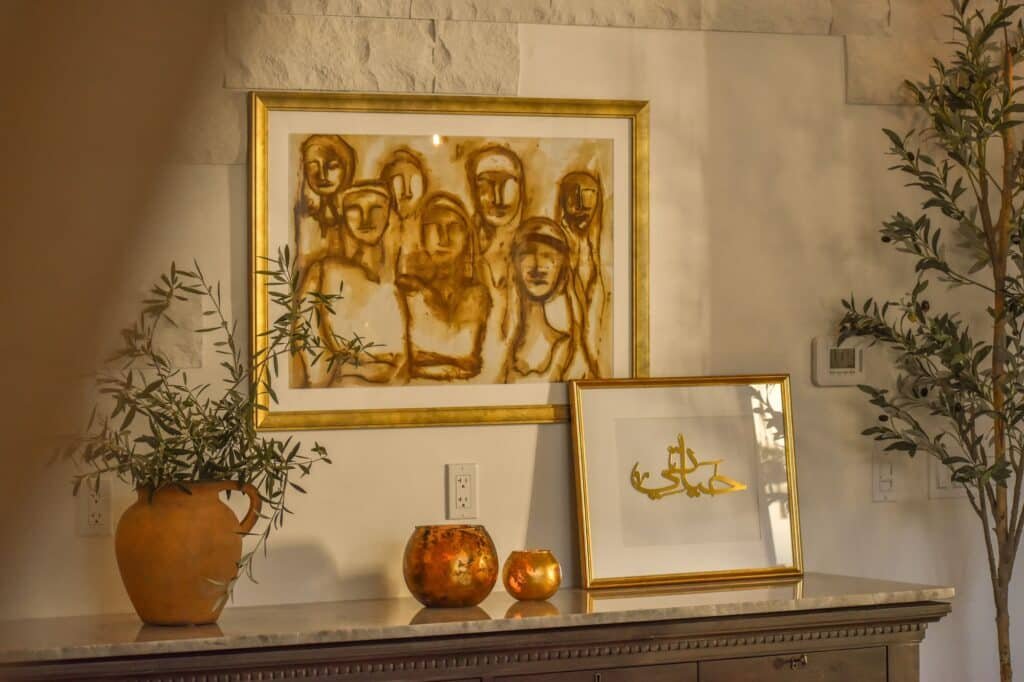
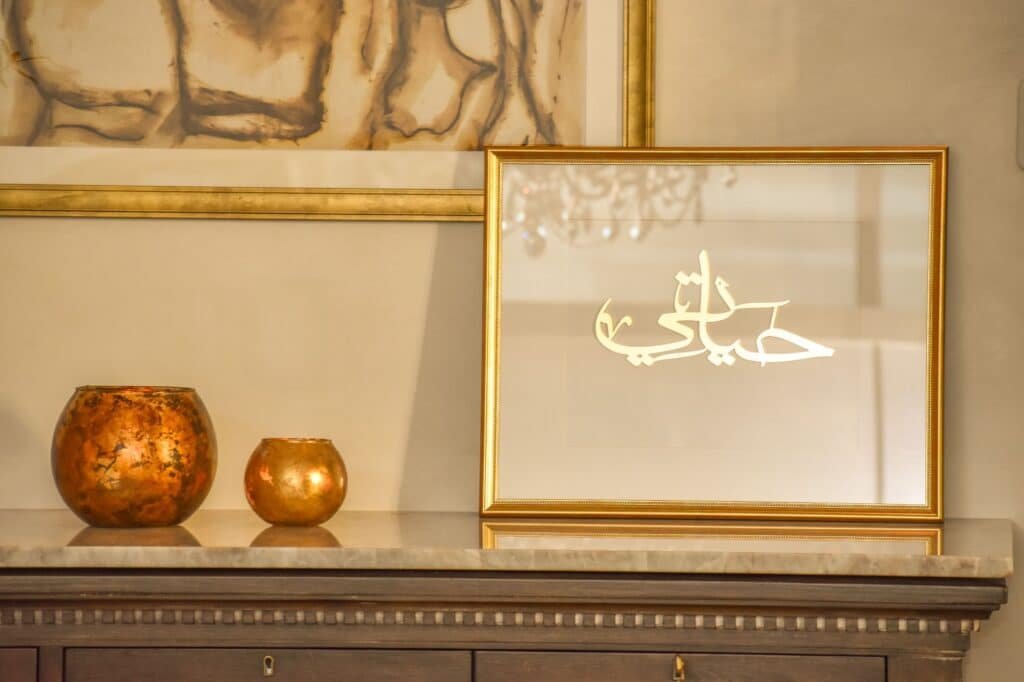
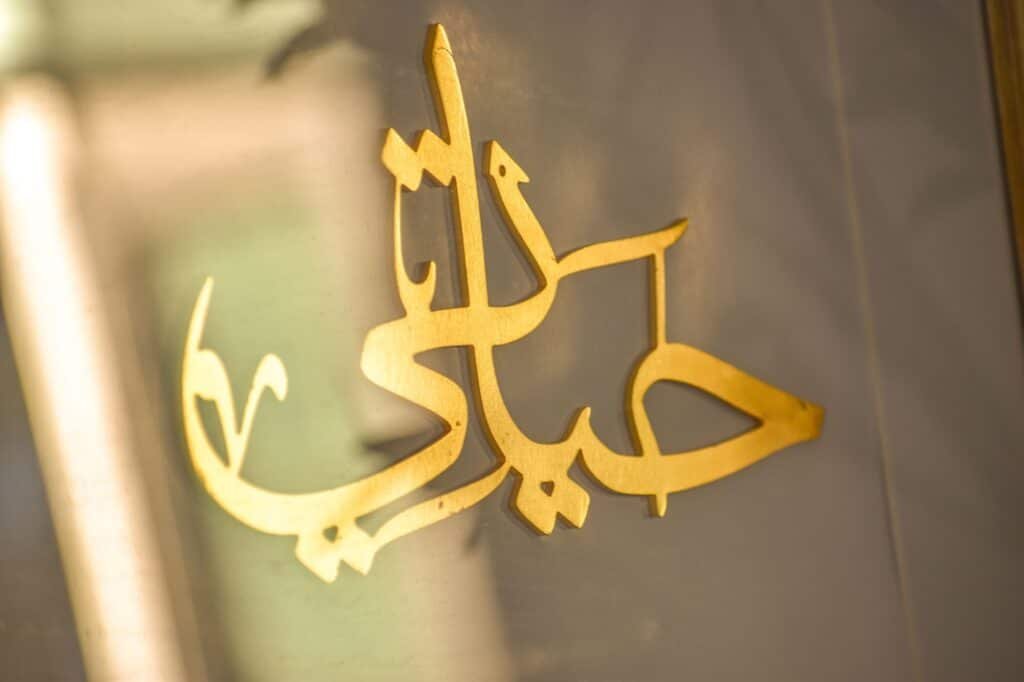
Ammatolí and Chef Dima’s road to “hayati” is one paved with determination and a love of Arabic culture.
Squeezing a lemon slice to heavily rain upon a plate of warak enab at Laya—Chef Charbel Hayak’s latest L.A. space dedicated to contemporary interpretations of Lebanese food—Chef Dima smiles happily after dabbling a bit of labne on top. Lifting one of the lamb-stuffed grape leaves for a bite, she briefly closes her eyes and then re-opens them, pride exuding from her face.
“I’m so happy [Chef Charbel] presented this like this,” Chef Dima said. “This is one of the most traditional ways to present warak enab—and it makes me so happy to see the food I grew up on in a place like this.”

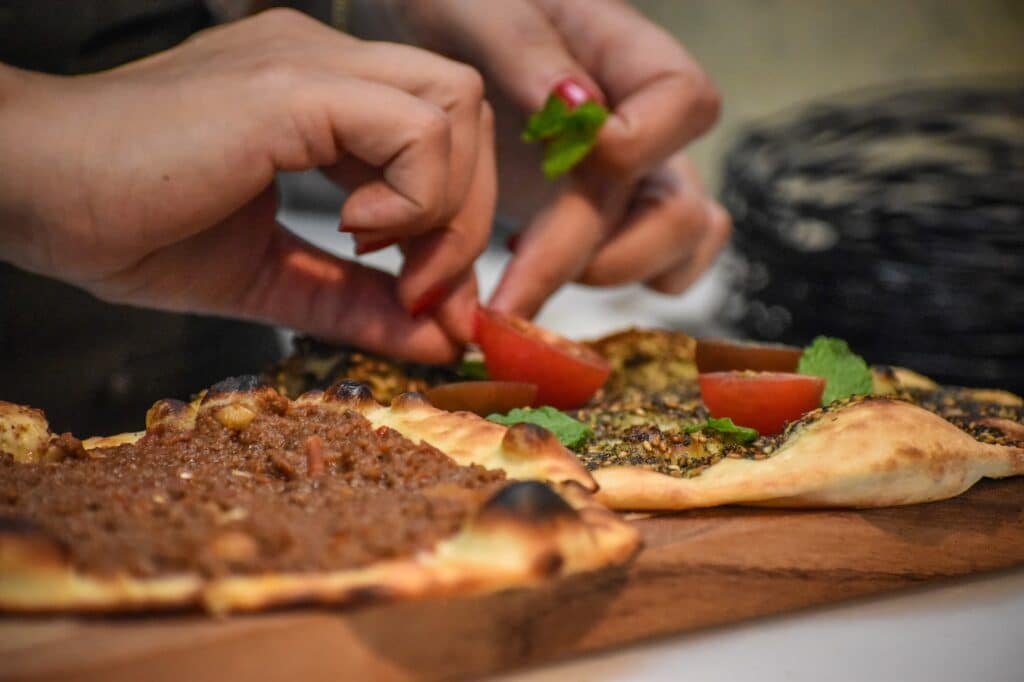

A “place like this” means far more than just a gorgeous, indoor-meets-outdoor space right off the mass intersection that is Sunset Boulevard and Cahuenga. It is the fact that, be it Dubai or Amman (Chef Dima’s home city), beautiful, elevated spaces commonly exist for Levantine food. In the U.S., however, it was and remains enormously rare for Levantine food to be presented without a deep sense of humbleness. And that is happily changing, especially across the past decade.
While Chef Dima marveled at the space that is Laya, she was undoubtedly proud of her comrade’s success and seeing a dish her mother and grandmother made presented in such a beautiful space. However, she remained silent on the fact that if anyone has led the charge in being the titular expression of traditional Levantine cuisine while uplifting its cultural capital in SoCal, it is her and Ammatolí.

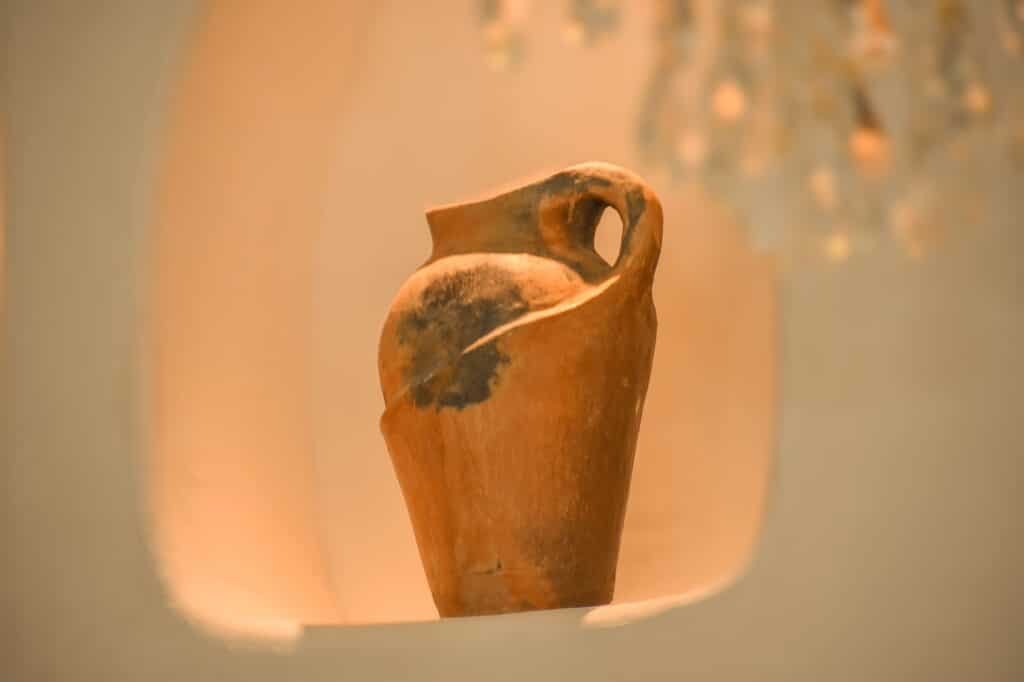
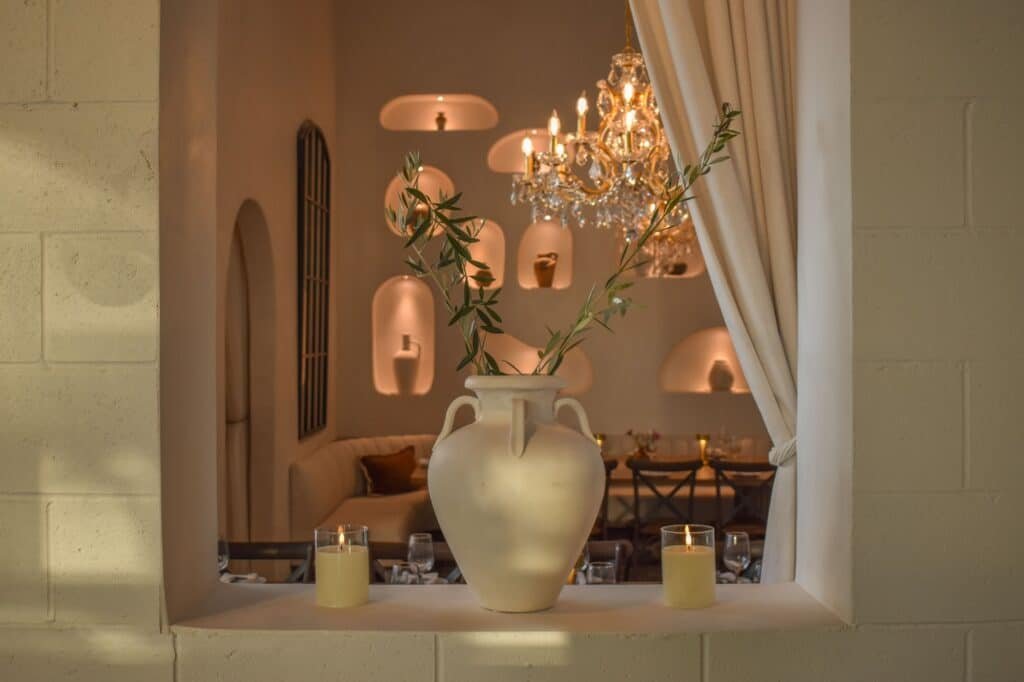
Ammatolí began as a casual space and evolved into the tangible expression of Chef Dima’s dream.
When Ammatolí first opened, stuffed between an architectural firm on its west and a burger chain on its east, it was far from the expansive space one sees today. Chef Dima’s food was always there—from manoushe and muhammara to falafel and foul—but the space wasn’t hers. Three massive television screens acted as menus. Service was walk-up only. Dinner didn’t really happen. It was, like many of the falafel shops and shawarma joints throughout SoCal, fast and casual.
But Chef Dima insisted on more.

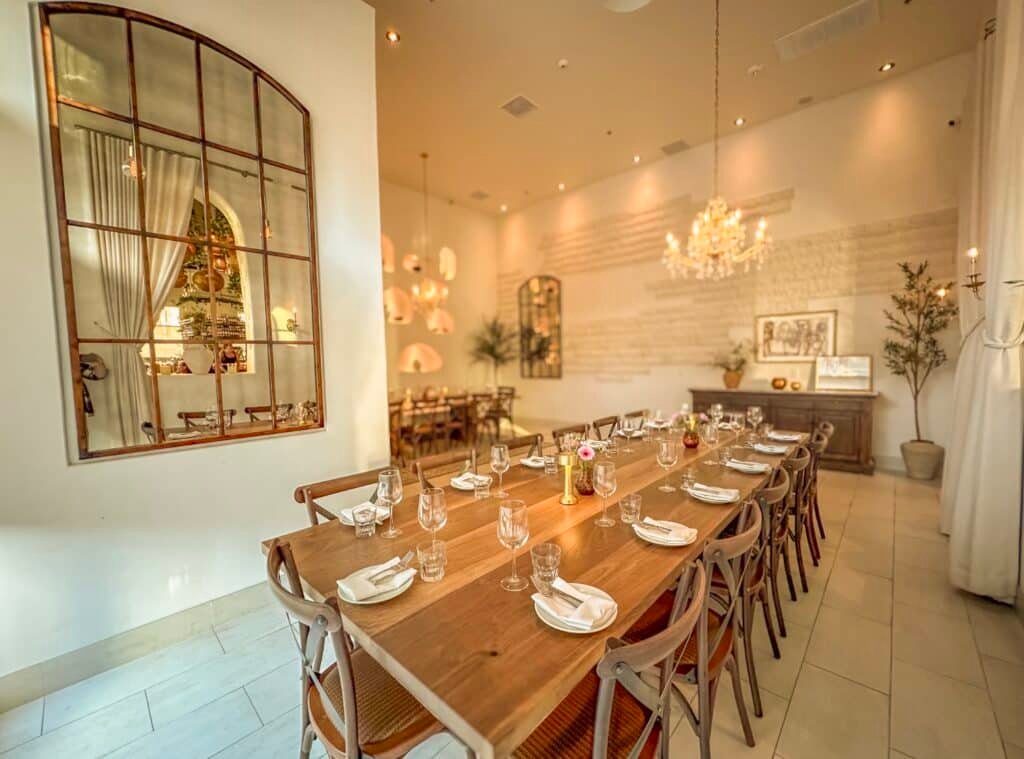
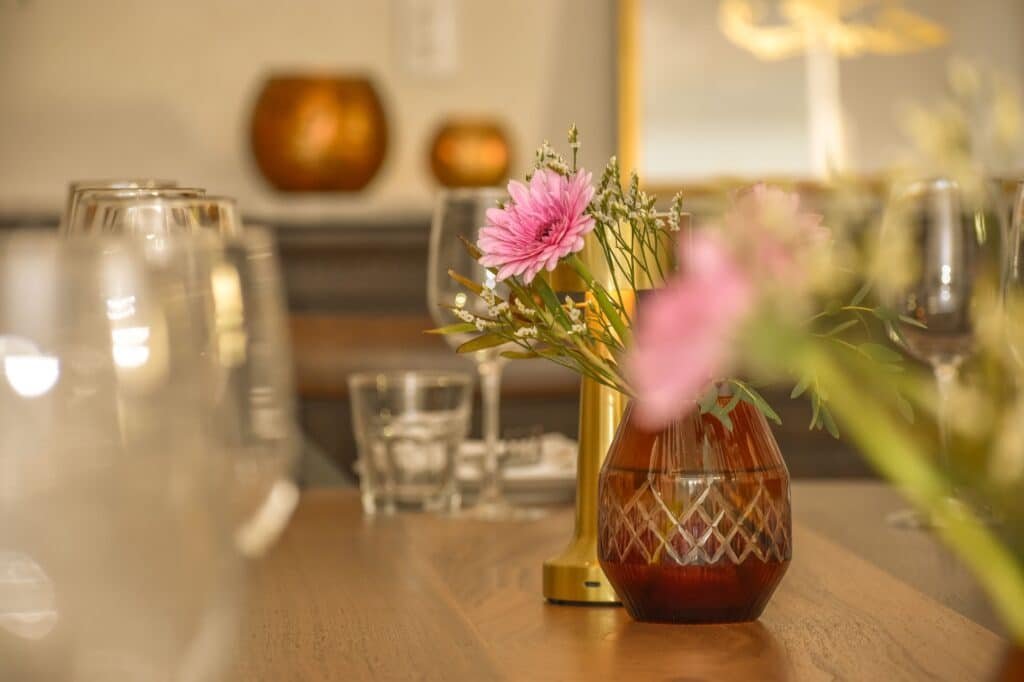
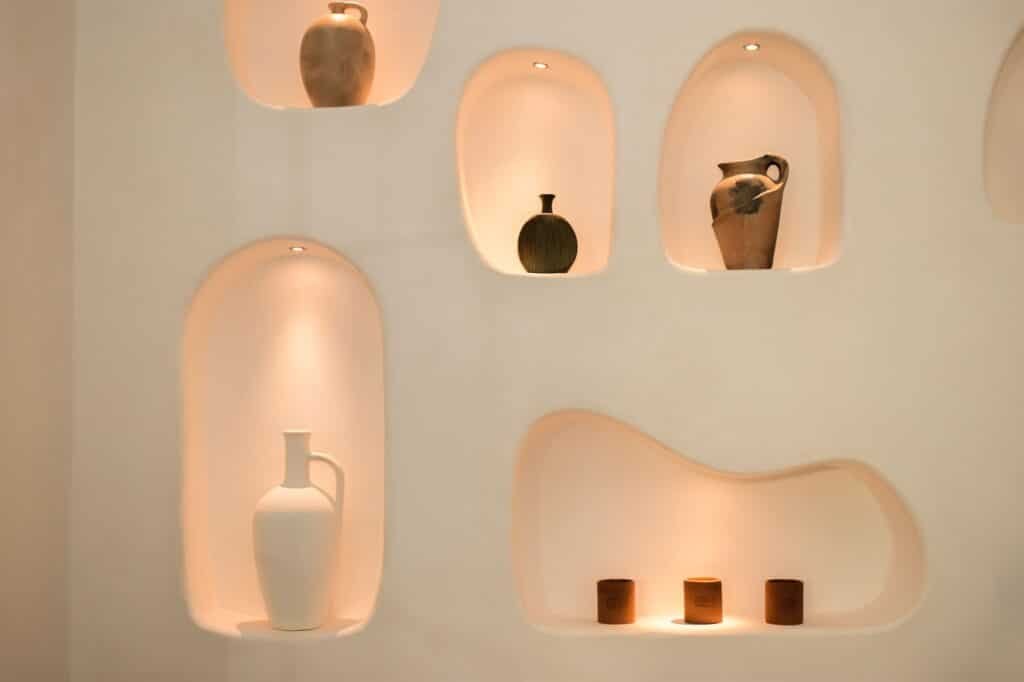

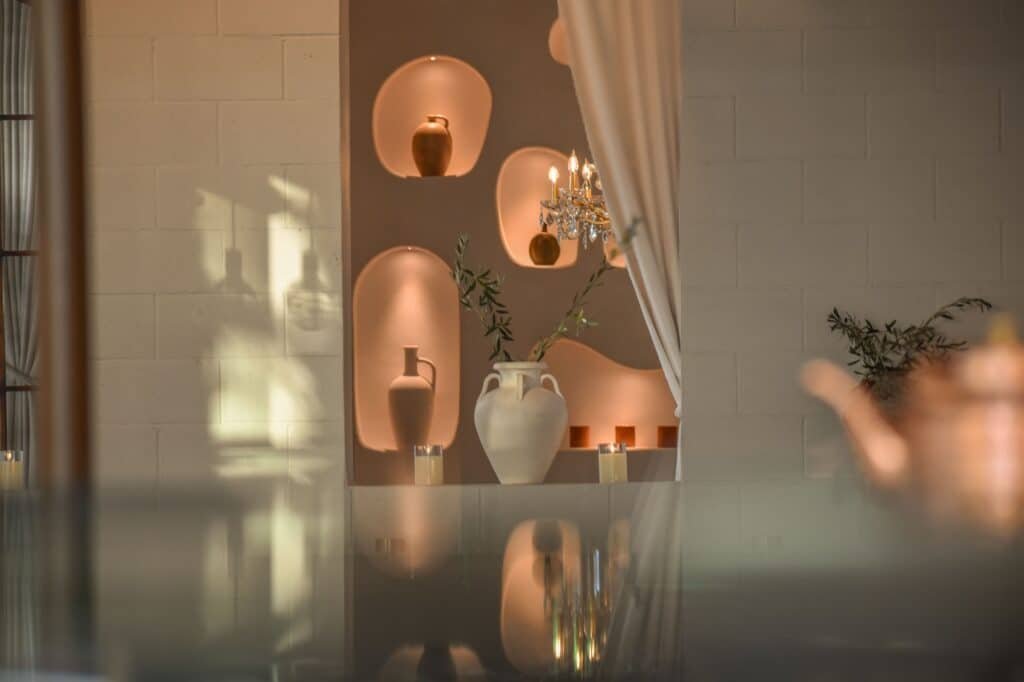
“Yes, flavor is important,” she once told me. “But food can and should be beautiful as well. The place where you consume it should reflect that as well. And Ammatolí, when we first opened, just wasn’t that.”
Slowly but surely, the communal tables were replaced with smaller tables for intimacy. Greys and silvers were replaced with whites and golds and mother of pearl. Servers touched tables. Wine and beer was introduced. Fresh pita and baked goods were made in-house. Lunch and dinner menus were divided. Her daughter, Massah, stepped in and creates a large portion of their dessert menu, from her downright delectable date cake to her marvelously masterful carrot cake. Dinner removed casual options, much to the chagrin of customers but more to the pride of Chef Dima’s offerings.

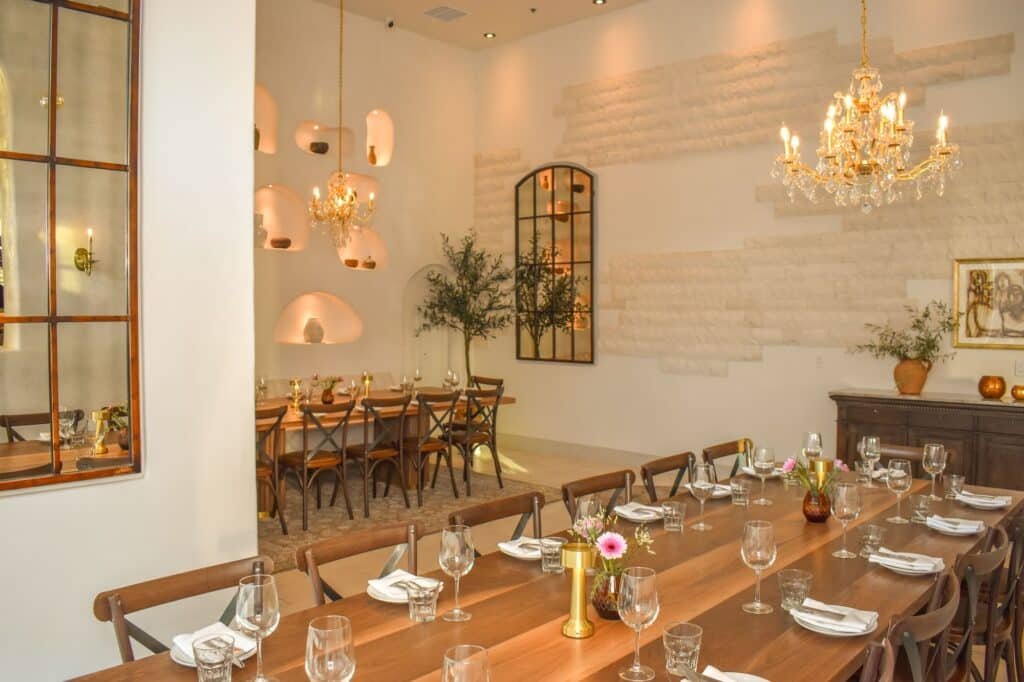
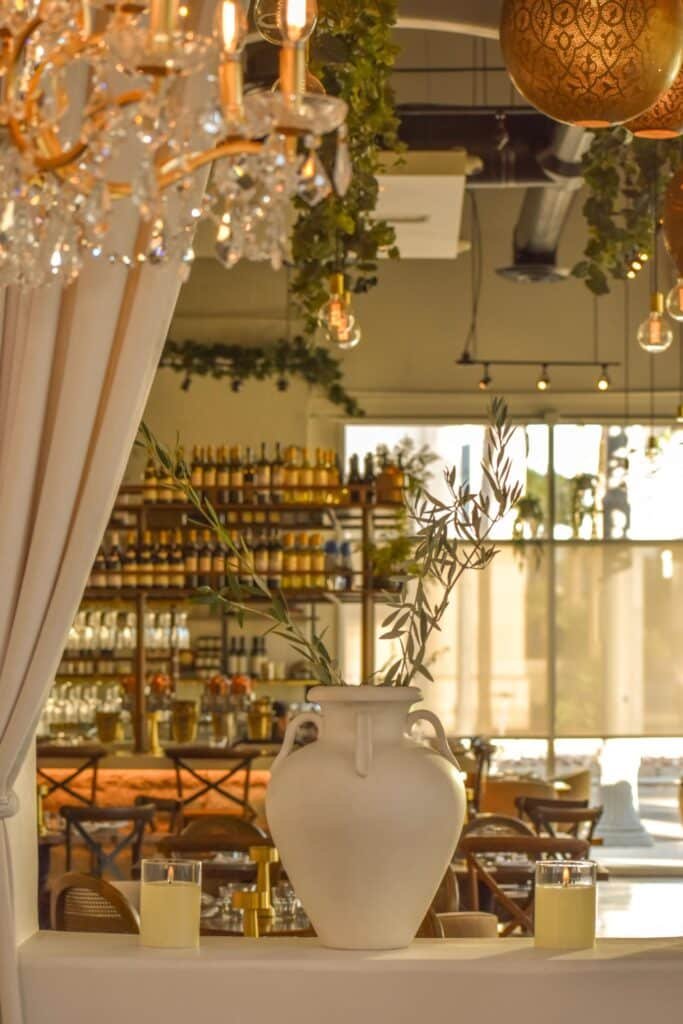

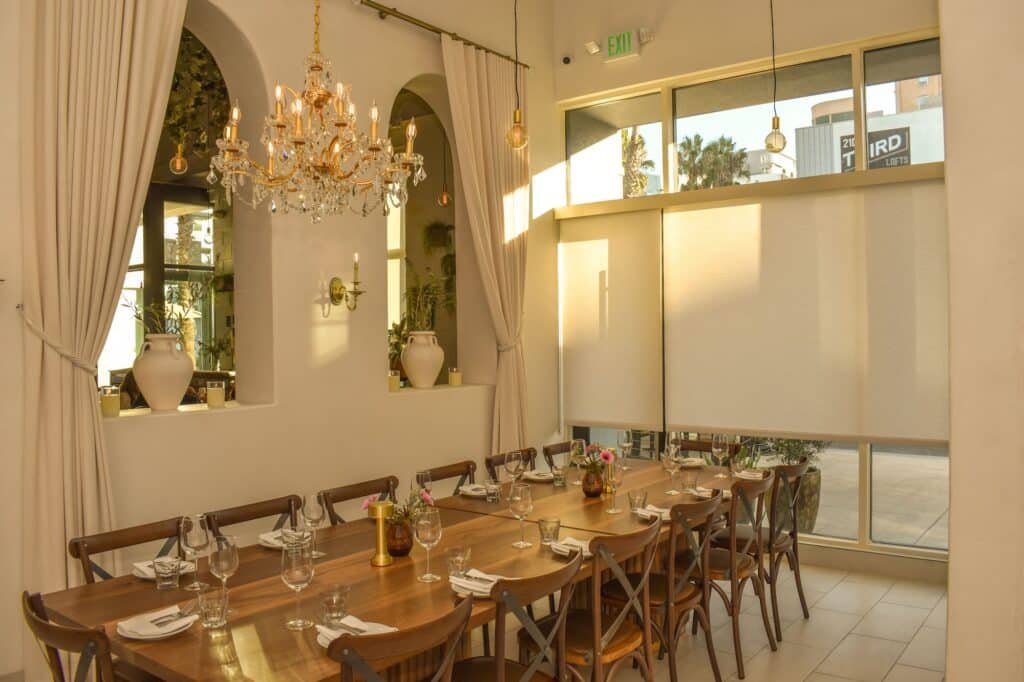
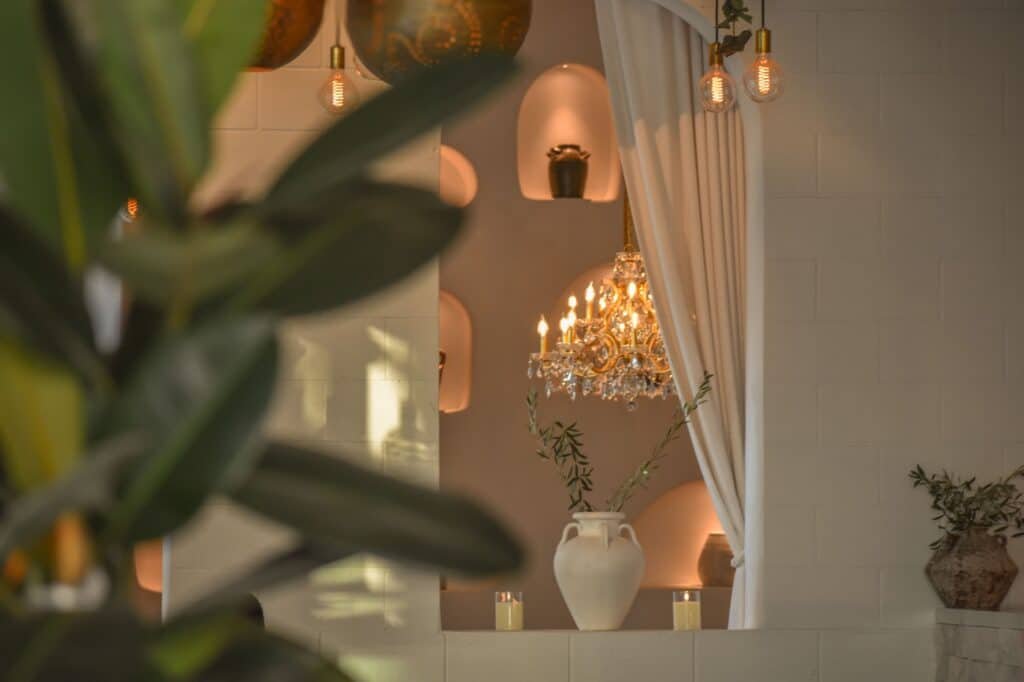
Chef Dima Habibeh has brought the beauty of the Levant directly to Long Beach.
All this has resulted in success. It has brought a healthy dose of culinary education to the Long Beach food scene. And even more, it is a restaurant that has rightfully earned its space as the city’s best restaurant, including a continual placement on Los Angeles Times food critic Bill Addison’s 101 Best Restaurants list, where it has crawled up in ranking each and every year.
And even more, it has resulted in an uplift of Arabic culture.
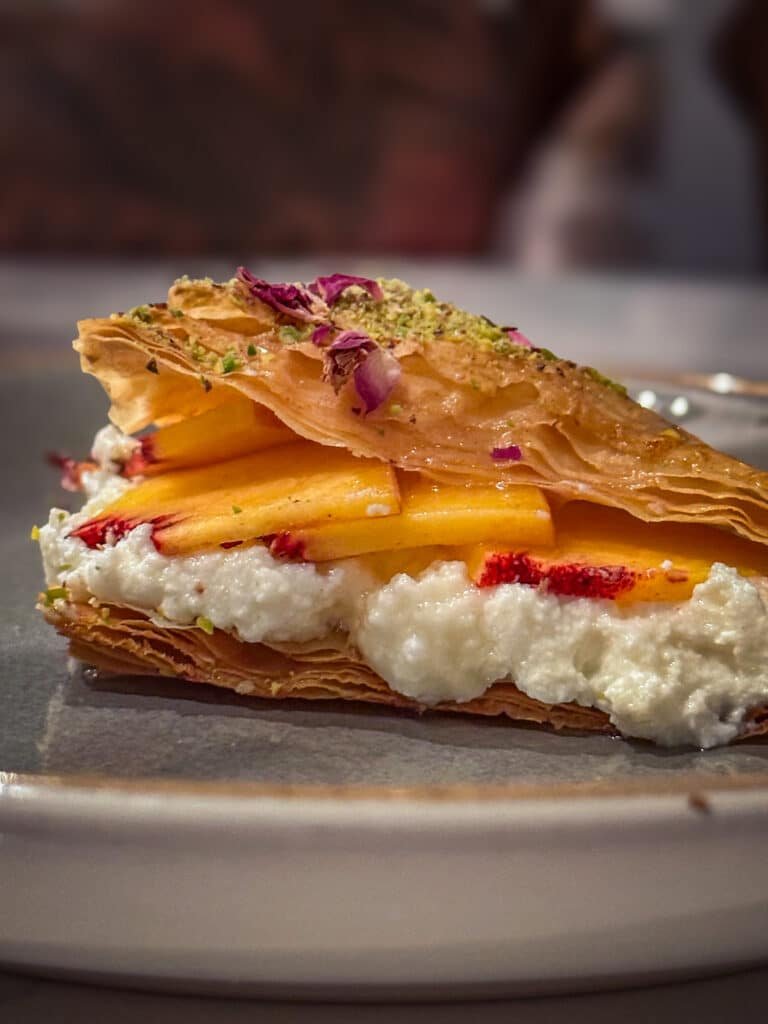
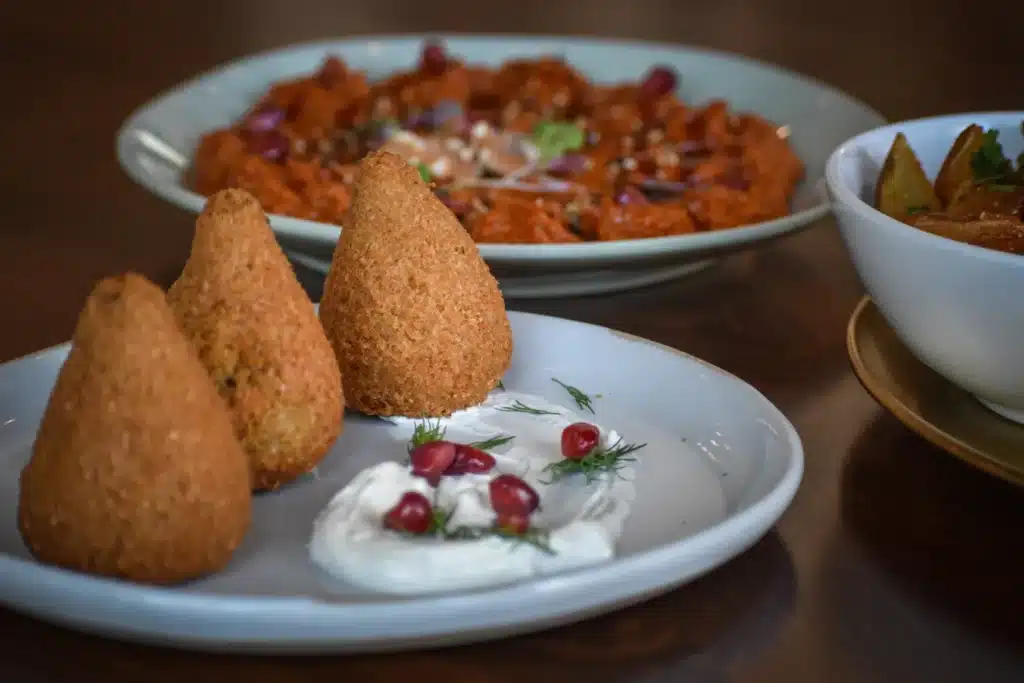
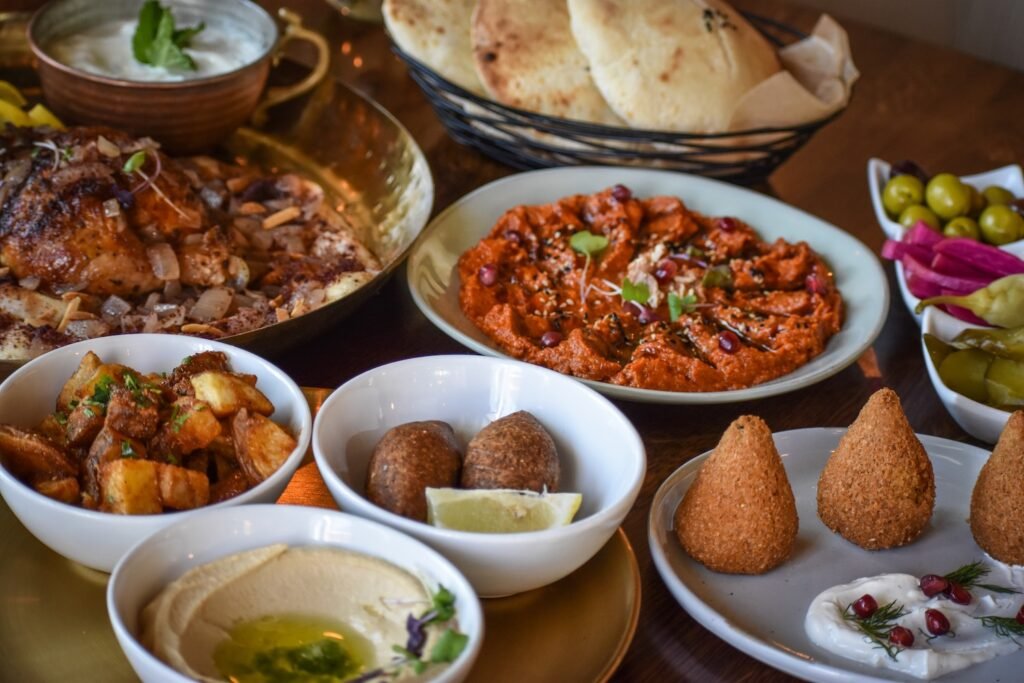
Ammatolí is ultimately a look at and expression of Chef Dima’s many identities. Her Palestinian father hails from Jerusalem. Her mother is from Damascus, Syria. And Dima herself grew up in Amman, Jordan (hence the restaurant’s name). She is proud to note that her food isn’t singularly Jordanian, Syrian, or Palestinian. Or Lebanese, Turkish… Or any singular place that embodies Levantine food. She believes the restaurant’s menu epitomizes the richness of her family history in the Levant region in addition to the second half of her life here in California.
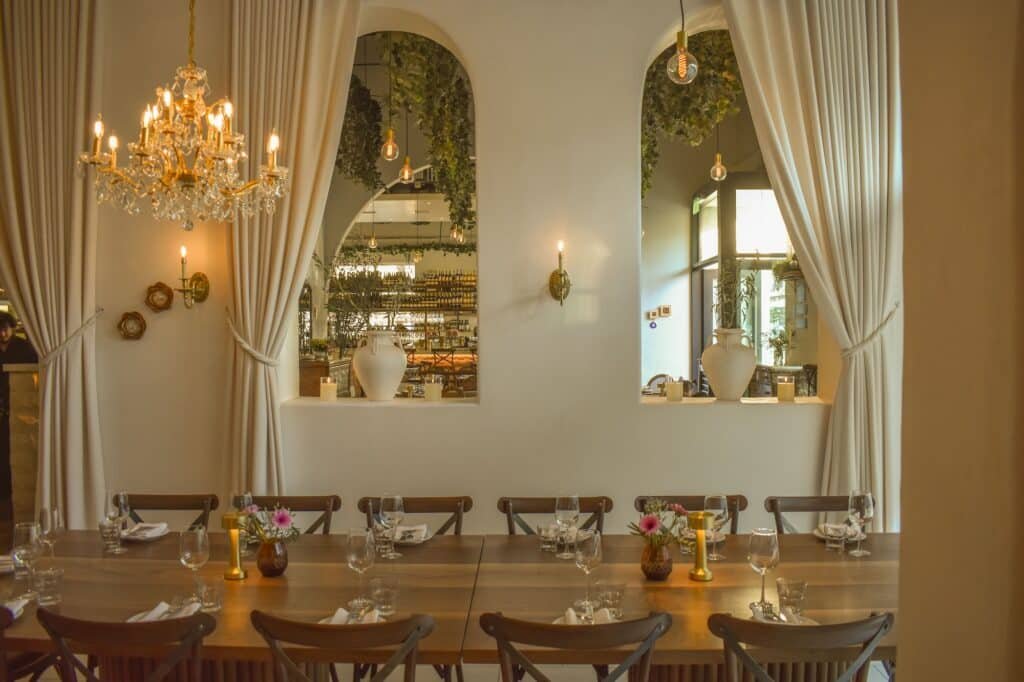
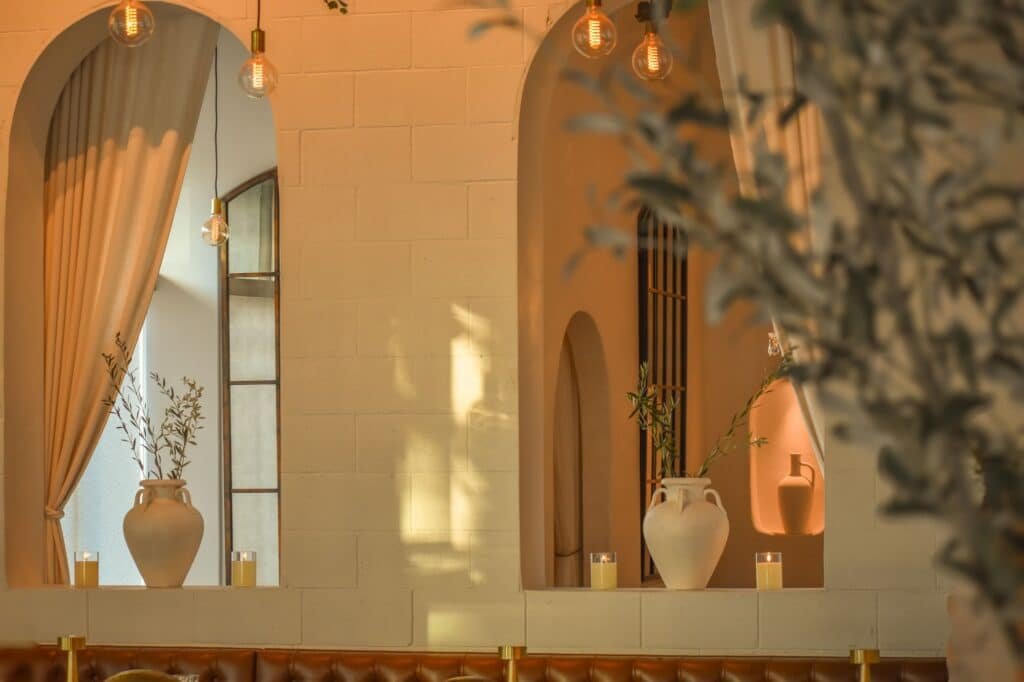
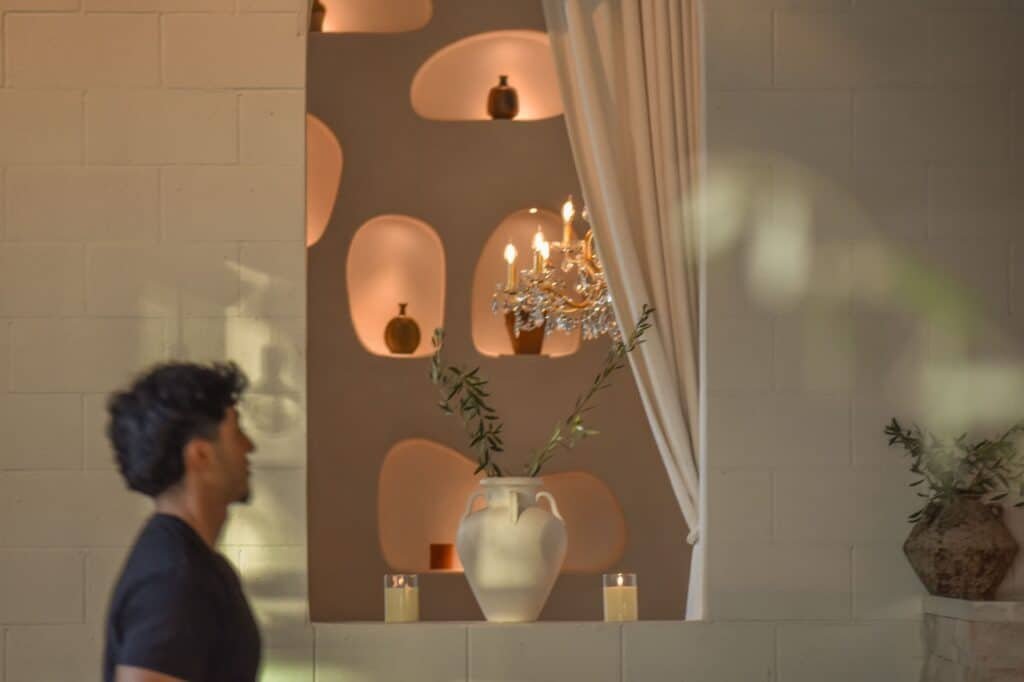
The Hayati room is already a booking success—which is a definitive win for Downtown.
With an additional 40 seats, the Hayati room is already proving to be quite the space. Chef Dima and her husband, Sam, have seen a continual roll-in of reservations for the space. From small private gatherings to complete bookings,
“We’ve already had a few birthdays, some corporate meetings,” Sam said. “It’s been amazing.”
It joins what many dismiss but should note is an outright rebound within the Downtown. Indeed, the neighborhood has been plagued by break-ins, burglaries, and buffoonery. However, the slew of businesses dusting their shoulders off in order to create community needs to be uplifted.
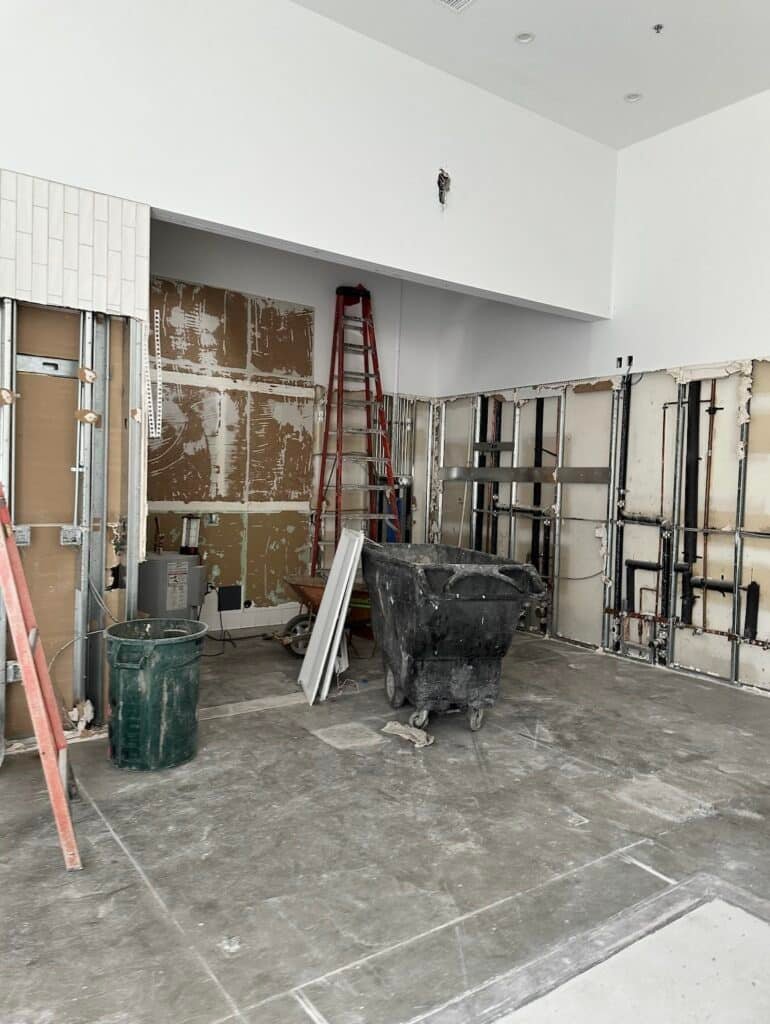
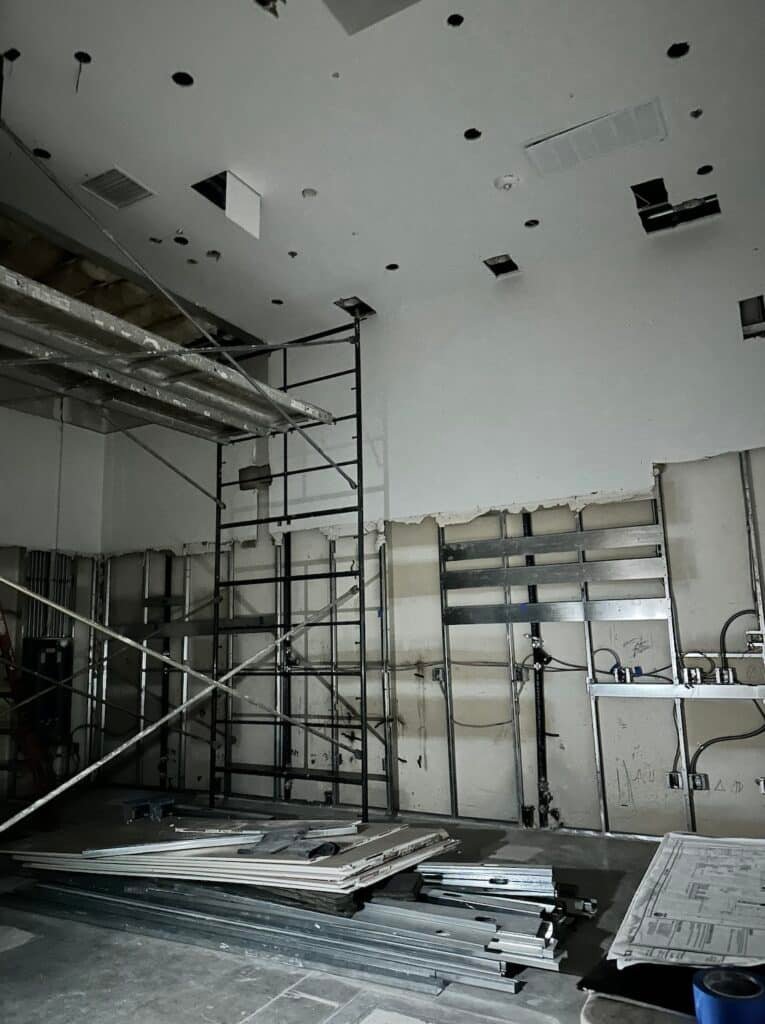
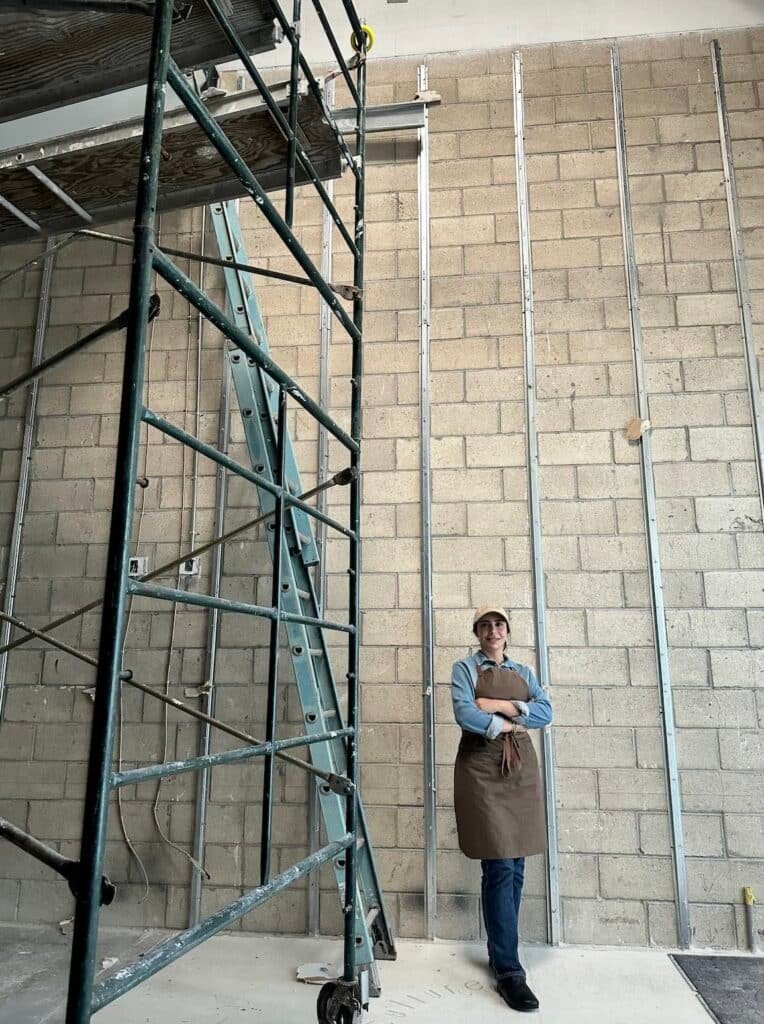
Downtown’s food and cultural scene has never been better. Sonoratown comes in with some of the region’s best Sonoran food. ISM Brewing proudly taking over Beachwood and is already bringing in awards while constantly evolving. Altar Society continually shifting its menu while creating a space that spans events, coffee, beer, and pizza. The Ordinarie staying open late and holding down the Promenade with its Americana sensibility.
Downtown is proving itself to be one resilient lil’ neighborhood. And Ammatolí (and its Hayati room) are an essential part of that, bringing in groups of people that might have otherwise entirely dismissed Downtown. Ultimately, it’s not just Chef Dima sharing hayati; it’s also us exuding it for our city and Downtown.
Ammatolí is located at 285 E. 3rd St.



Your passion for your subject matter shines through in every post. It’s clear that you genuinely care about sharing knowledge and making a positive impact on your readers. Kudos to you!